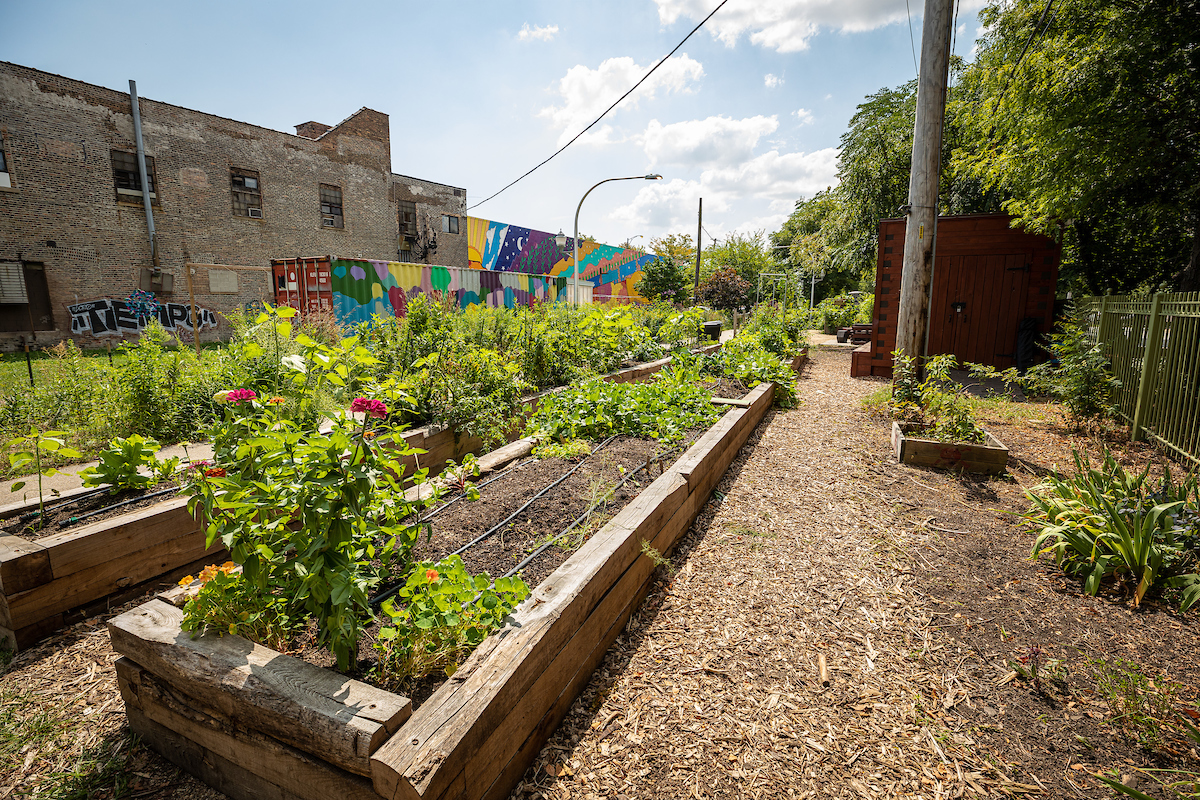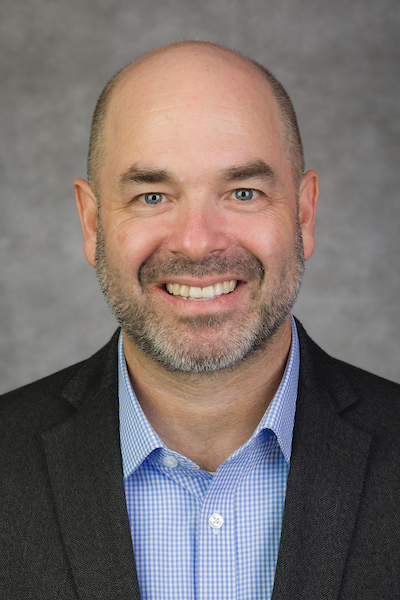 The El Paseo community garden, in Chicago's Pilsen neighborhood, is one of the six hosting the composting pilot program. Chicago has an estimated 260 community gardens. (DePaul University/Jeff Carrion)
The El Paseo community garden, in Chicago's Pilsen neighborhood, is one of the six hosting the composting pilot program. Chicago has an estimated 260 community gardens. (DePaul University/Jeff Carrion)
DePaul University has teamed up with the organization NeighborSpace and the City of Chicago to evaluate a small pilot program that could improve food access in the city.
The program, announced in November, creates composting sites at six community gardens across the city that will provide residents with a way to recycle food scraps. The resulting compost will be used to enrich the soil in the gardens while helping to divert waste from the sanitation system and reduce climate emissions. The program is a partnership between the city and NeighborSpace, a nonprofit land trust in Chicago.
Howard Rosing, anthropologist and executive director of the Steans Center at DePaul and
one of the 125 Faces of DePaul, will play an integral role in evaluating the project. Rosing believes that, while the scale of the pilot project is modest, it could prove very beneficial for city residents, strengthening communities while supporting those facing food insecurity.
 Howard Rosing, executive director of the Steans Center at DePaul, will help evaluate the success of the project that composts food scraps at community gardens. (DePaul University/Jeff Carrion)
Howard Rosing, executive director of the Steans Center at DePaul, will help evaluate the success of the project that composts food scraps at community gardens. (DePaul University/Jeff Carrion)
"Soil is one of the most expensive parts of being a community gardener," he says. Composting produces rich, healthy soil at virtually no cost. A citywide compost collection network could be a huge asset for community gardens. "This nitrogen-rich food waste typically goes to the landfill. But everywhere else in the world, where they practice agro-ecological principles, they see it as gold."
For a recent study, Rosing and NeighborSpace calculated that there are 260 community gardens in Chicago. "They are tremendous assets for the city," Rosing says. "Imagine if we could leverage food scraps to build better soils for local health. There would be all kinds of ways these spaces could be vehicles for positive change."
The most obvious long-term benefit could be an injection of healthy and readily available food for local residents. According to the U.S. Department of Agriculture, food insecurity affects about one in 10 households nationwide, especially those with children in the home. One obstacle in getting healthy food to those in need is simply that some families lack the funds to put nutritious food on the table each day. Another is that, despite urban areas being densely populated and well connected to transit, it can be inordinately difficult in many racially segregated, low-income neighborhoods to obtain affordable, healthy foods.
For Rosing, who has spent his career studying and helping to create and improve sustainable food access, this situation is a visible manifestation of an inequitable farm-to-consumer system that involves increasingly corporate food producers, manufacturers and distributors, urban socioeconomic disparities, and racial and environmental justice issues. Attempts to improve food systems so that they work for farmers, urban gardeners, and the environment—without looking at all parts of the food production process in a systemic way—can only lead to temporary solutions.
Rosing is also part of a team working on evaluating the Good Food Purchasing Program, which encourages city and county governments to follow values-driven procurement that prioritizes the local economy, the environment, nutrition, workers' rights and animal welfare. Both Chicago and Cook County have adopted the guidelines.
As a teacher, Rosing regularly offers courses on sustainable food systems at DePaul, many of which are integrated with community projects. Rosie Fitz '16 studied with Rosing and is now the operational and events manager at the HEAL Food Alliance, which works to build power to transform healthy and affordable food and farm systems.
"Being Howard's student was instrumental for my career, and I wouldn't be where I am now without him," Fitz says, noting in particular his Community Food Systems class.
"He did an amazing job weaving opportunities at partner organizations with students who were eager to jump in after learning about an issue from him, and it unveiled racial injustices in our food system across Chicago in a way that my brain could comprehend seamlessly—using maps and geographic information systems. I have a deep gratitude for his commitment to not only his students, but also to community service and social justice."
Chris Quirk is a freelance writer.